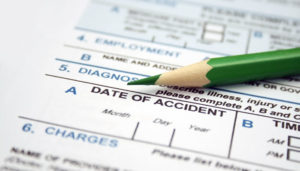
This is a recurring issue in a large number of cases: late work comp checks. The first thing to understand is at what point is it “late”? Also, is it late because of delivery or mail issues? The general rule is the insurance company should have compensation checks postmarked by the last day of the pay period. This does not mean the employer’s pay period, but the pay period of disability benefits set by the insurance company. Once it leaves the hands of the insurance company, the insurance company has fulfilled its obligation. The pay period is generally every two weeks, and most carriers pay on that schedule. There are instances where weekly checks will be sent, or one check for three/four weeks of disability benefits, but that is the exception. Another issue we see with some regularity is when one check will be paid near the beginning of the pay period and the next towards the end, creating a period of about three weeks or so in between checks. In this situation, if it’s within the pay period, it may seem late, but it not legally late. This post will discuss when penalties and interest attach to late work comp checks.
Penalties
Penalties for Late Work Comp Checks
The second thing to understand is just because the work comp checks are late (postmarked after the close of the pay period), doesn’t mean that penalties attach. Penalties attach when a carrier fails to pay any installment of compensation seven days after it becomes due. Fla. Stat. 440.20(6)(a) states as follows:

(6)(a) If any installment of compensation for death or dependency benefits, or compensation for disability benefits payable without an award is not paid within 7 days after it becomes due, as provided in subsection (2), subsection (3), or subsection (4), there shall be added to such unpaid installment a penalty of an amount equal to 20 percent of the unpaid installment, which shall be paid at the same time as, but in addition to, such installment of compensation. This penalty shall not apply for late payments resulting from conditions over which the employer or carrier had no control.
Interest
Interest for Late Work Comp Checks
Interest attaches whenever a payment is not paid when due (no seven day provision). Fla Stat. 440.20(8)(a) states as follows:

(8)(a) In addition to any other penalties provided by this chapter for late payment, if any installment of compensation is not paid when it becomes due, the employer, carrier, or servicing agent shall pay interest thereon at the rate of 12 percent per year from the date the installment becomes due until it is paid, whether such installment is payable without an order or under the terms of an order. The interest payment shall be the greater of the amount of interest due or $5.
Mail or Delivery Issues
Mail Related Issues for Late Work Comp Checks
As noted in Fla. Stat 440.20(6)(a), penalties shall not apply for late payments resulting from conditions over which the employer or carrier had no control. This means if it gets “lost in the mail”, penalties are not due. Another situation which we have seen is when an injured worker moves and does not inform the insurance company. In situations like that, it’s clear the delay was beyond the control of the insurance company. Another issue that takes late payments outside the control of the insurance company is it does not have knowledge it owes benefits. For example, a doctor takes an injured worker completely out of work, but fails to notify the insurance company. Two months go by and benefits are not paid. If the employer or carrier did not have knowledge it owed benefits, the failure to make payment would result from conditions over which it had no control.
While the employer/carrier is excused from paying penalties on late payments resulting from conditions over which it had no control, there is no such excusal for interest on late payments. This is because the two statutes discussed above do not contain the same provisions. The First DCA has held that because the Legislature has chosen not to provide a mechanism for excusing an employer or carrier from paying interest on late payments of compensation and because interest is not punitive, a JCC may not deny a claim for interest because late payment resulted from conditions over which the employer or carrier had no control. Jones v. City of Petersburg (1st DCA 2010); 1D10-1043.
If you have questions regarding late work comp checks, or any other related question, contact our office to speak with one of our Tampa workers comp attorneys regarding your case. Our firm has been protecting the rights of Florida’s injured workers since 1989. We offer free consultations.
